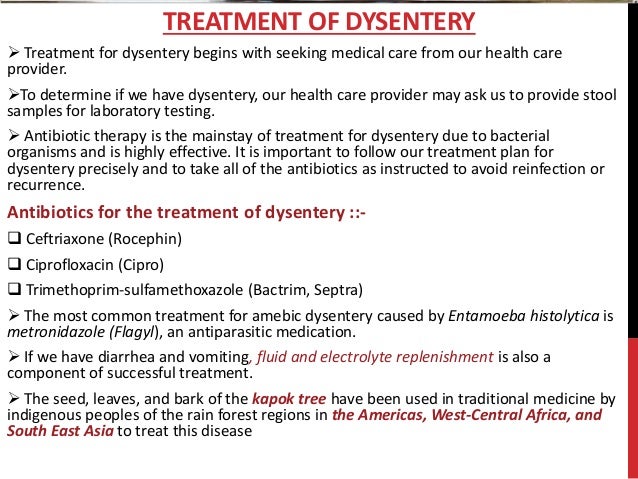In this article, we will discuss the role of antibiotics in preventing dysentery, as well as other preventative measures that can be taken to reduce the risk of infection.

Causes of Dysentery
Dysentery is caused by a variety of pathogens, including:
- Bacteria: Shigella, Salmonella, and Escherichia (E. coli) are common bacteria that cause dysentery.
- Viruses: Rotavirus, Norovirus, and Adenovirus are common viruses that cause dysentery.
- Parasites: Giardia and Entamoeba histolytica are common parasites that cause dysentery.
Symptoms of Dysentery
The symptoms of dysentery can vary depending on the underlying cause, but common symptoms include:
- Diarrhea
- Abdominal pain
- Bloody stools
- Fever
- Vomiting
- Dehydration
Antibiotics for Dysentery Prevention
Antibiotics are often used to treat dysentery, especially if the infection is caused by bacteria. However, antibiotics are not effective against viral or parasitic infections. The most commonly used antibiotics for dysentery prevention include:
- Ciprofloxacin: This antibiotic is effective against a wide range of bacteria, including Shigella and Salmonella.
- Azithromycin: This antibiotic is effective against a wide range of bacteria, including E. coli and Salmonella.
- Metronidazole: This antibiotic is effective against parasites such as Giardia and Entamoeba histolytica.
- Rifaximin: This antibiotic is effective against E. coli and other bacteria that cause dysentery.
How to Take Antibiotics for Dysentery Prevention
When taking antibiotics for dysentery prevention, it is essential to follow the prescribed dosage and duration of treatment. Here are some tips:
- Take the antibiotic exactly as directed by your healthcare provider.
- Complete the full course of treatment, even if symptoms improve before finishing the medication.
- Do not share antibiotics with others or use them for other infections.
- Inform your healthcare provider about any allergies or medical conditions before taking antibiotics.
Other Preventative Measures
While antibiotics can be effective in preventing dysentery, there are other preventative measures that can be taken to reduce the risk of infection. These include:
- Practice good hygiene: Wash your hands frequently with soap and water, especially after using the bathroom or before handling food.
- Drink safe water: Avoid drinking contaminated water, and opt for bottled or filtered water instead.
- Eat safe food: Avoid eating undercooked or raw meat, seafood, or eggs.
- Avoid close contact: Avoid close contact with people who have dysentery, especially if they have not been treated.
- Get vaccinated: There are vaccines available for some types of dysentery, such as rotavirus.
FAQ
- What is the most effective antibiotic for dysentery prevention?
The most effective antibiotic for dysentery prevention depends on the underlying cause of the infection. Ciprofloxacin and azithromycin are commonly used antibiotics for dysentery prevention. - Can antibiotics cure dysentery?
Antibiotics can cure bacterial dysentery, but they are not effective against viral or parasitic infections. - How long does it take for antibiotics to work for dysentery?
Antibiotics can start to work within 24-48 hours of treatment, but it may take several days for symptoms to improve. - Can I take antibiotics for dysentery prevention without a prescription?
No, antibiotics should only be taken under the guidance of a healthcare provider, as they can have side effects and interact with other medications. - How can I prevent dysentery while traveling?
To prevent dysentery while traveling, practice good hygiene, drink safe water, eat safe food, and avoid close contact with people who have dysentery.
Conclusion
Dysentery is a serious infection that can be prevented with antibiotics and other preventative measures. While antibiotics can be effective in treating bacterial dysentery, it is essential to follow the prescribed dosage and duration of treatment. Additionally, practicing good hygiene, drinking safe water, eating safe food, and avoiding close contact with people who have dysentery can reduce the risk of infection. By taking these preventative measures, individuals can reduce their risk of dysentery and stay healthy, especially when traveling or in areas with poor sanitation. It is essential to consult a healthcare provider before taking antibiotics or any other medication for dysentery prevention.
Closure
Thus, we hope this article has provided valuable insights into Dysentery prevention antibiotics. We thank you for taking the time to read this article. See you in our next article!